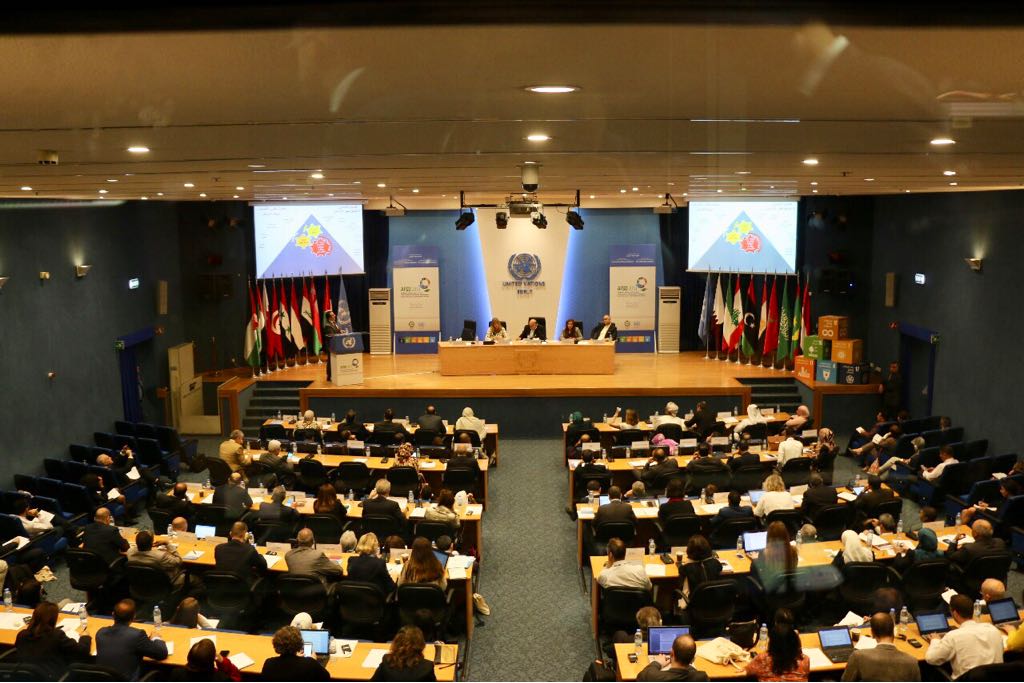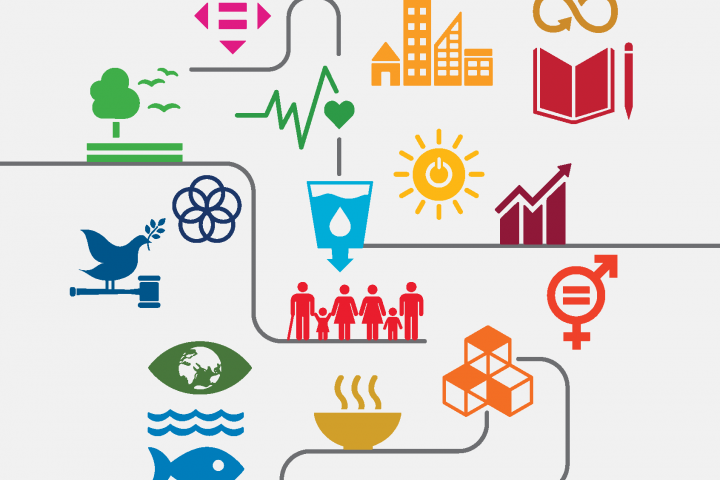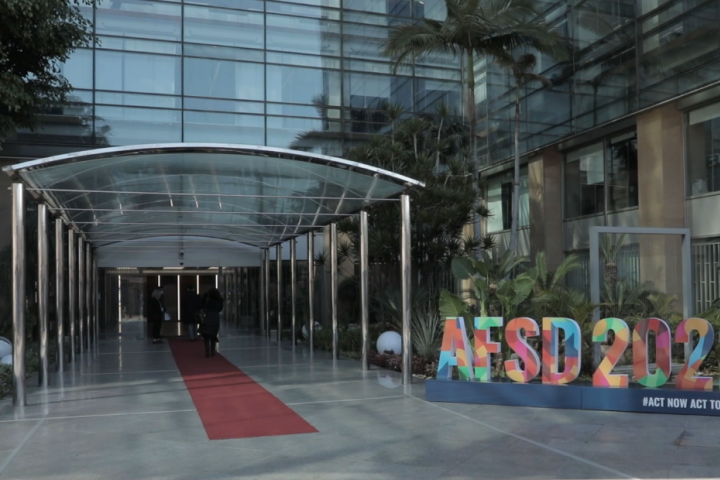Beirut, 26 April 2018 (Communication and Information Unit) --The Arab Forum for Sustainable Development concluded on Thursday at the UN Economic and Social Commission for Western Asia (ESCWA) with multistakeholders agreeing on key messages related to natural resources and ways to safeguard them for future generations.
“The Forum showcased promising steps that reaffirmed serious commitment from all stakeholders to the concept and principle of development,” said the Executive Secretary of ESCWA, Mohamed Ali Alhakim, closing the three-day regional meeting.
“It also portrayed that working as usual is not an option anymore. We need to take bold steps to make a cultural transformation, and invest in science and innovation for a paradigm shift,” he highlighted to more than 250 participants visiting the UN’s regional arm in Beirut from all corners of the Arab world.
Mr. Alhakim shared a tour d’horizon of the many issues related to the Forum’s theme, Natural Resources, Future Generations and the Common Good, that were tackled since Tuesday. These included how to integrate natural resources into development planning while ensuring actions go hand in hand with Arab countries’ respective priorities; ways of rethinking economic diversification to safeguard the lives and livelihoods of future generations; and financing inclusive and sustainable development.
“Despite ambitious efforts, it is still hard to say we reached concrete solutions and answers to all our challenges,” he continued. “However, the Forum remains a regional platform and a success story for a region characterized by its rich diversity.”
The Arab Forum for Sustainable Development (AFSD) is an annual meeting that aims to facilitate stocktaking of progress at national and regional levels towards achieving the 2030 Agenda. It feeds into the High Level Political Forum (HLPF) held every year in July at United Nations Headquarters, where goals are further reviewed in-depth at a global level.
Before the closing ceremony, the Deputy Executive Secretary of ESCWA, Khawla Mattar, recalled six essential regional preparatory meetings that took place in the lead up to the Forum, to inform the debates. These focused on three of the six goals under review in 2018, namely SDG 6 (Clean Water and Sanitation), SDG 7 (Affordable and Clean Energy) and SDG 15 (Life on Land), as well a meeting for parliamentarians, one for civil society organizations, and one on technology and innovation.
“The themes of these meetings were determined by the recommendations from last year’s Arab Forum for Sustainable Development,” said Ms. Mattar, underscoring the continuum of the work undertaken on the 2030 Agenda, and how efforts each year impact long-term progress.
The other three goals under review at AFSD 2018 were SDG 11 (Sustainable Cities and Communities), SDG 12 (Responsible Consumption and Production), and SDG 17 (Partnerships for the Goals).
“This Forum is the ideal platform to bring our ideas together and tackle region issues in a collaborative way,” Ms. Mattar added. “Key messages agreed upon today form the voice of the Arab region at the global level.”
These key messages were delivered in the last plenary session by Ms. Mattar alongside Karima El Korri, Chief of the 2030 Agenda Unit of ESCWA, Mona Fattah, Social Affairs Officer from the Sustainable Development Policies Division, and Hania Sabbidin Dimassi, from the 2030 Agenda Unit. Endorsed by participants, these messages (link available soon) will now be shared with the Secretariat of the HLPF.
“The principle of leaving no one behind requires us to involve local councils and communities in the planning process and to follow up on progress so that everyone can benefit from regional and global achievements,” said Ms. El Korri.
In the Arab region, a number of factors contribute to individuals or groups being left outside the development efforts or behind other groups. These factors include occupation, war and conflict, as well as stark urban-rural divides, and exclusionary political and social practices. Thinking through ways to reach those marginalized groups and, conversely, the impact of leaving them behind in planning for and implementing the Sustainable Development Goals was one recurring theme at the Forum.
With youth between 15-29 years making up around 30 per cent of the overall population in the Arab region, a special session was dedicated to how future generations will be greatly affected by decisions taken today, and how to ensure they are included in the decision-making process.
Women’s empowerment was also a cross-cutting theme, with a special session dedicated to examining how the six goals in focus at AFSD 2018 are linked to other SDGs and targets with a particular impact on gender equality.
More details on the plenary and special sessions of the Forum available here: https://www.unescwa.org/events/arab-forum-sustainable-development-2018
AFSD 2018 Twitter Coverage: https://bit.ly/2HvQ7sA
Facebook Albums: links available soon
For more information:
Nabil Abu-Dargham, Head, ESCWA Communication and Information Unit
+961-70-993-144; email: dargham@un.org
Ms Rania Harb +961-70-008-879; email: harb1@un.org
Ms Myrna Mahfouz: +961-70-872-372; email: mahfouz@un.org
Mr Haidar Fahs: +961-70-079-021; email: haydar.fahs@un.org




